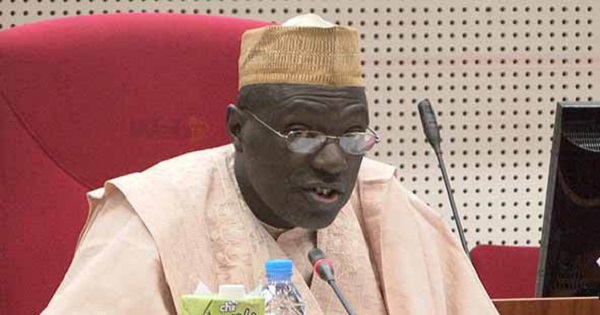FG Begins Preparation Of 2016 Budget

The Federal Government on Tuesday began the process of the preparation of the 2016 budget for the country.
The fiscal document for 2016 will be based on six policy thrusts and it is aimed at stimulating growth and reducing the level of poverty in the economy.
The policy thrust are economic and social development, infrastructure, governance, environment, as well as state and regional development.
Under each pillar, broad policy objectives have been identified along the Key Performance Indicators, targets and programmes.
Addressing stakeholders at the validation workshop on the policy thrust of the 2016-2020 Medium Term Strategic Plan, the Secretary, National Planning Commission, Mr. Bassey Akpanyadung, stated that budgeting would no longer be business as usual.
He said the policy thrust of the government must be consistent with the zero-based budgeting system, which will come into effect next year.
With this development, Akpanyadung said the leadership of the respective Ministries, Department and Agencies of governments would need to build their capacities in the areas of planning, research and statistics.
He said the monitoring and evaluation system would be strengthened with emphasis on physical monitoring of projects, adding that the envelop system of budgeting would no longer be used in the country’s budgeting process.
The envelop system was introduced by the Federal Government in 2003 and works by providing each MDA with a maximum amount for its capital and recurrent needs for the fiscal year.
Under the system, the MDAs were left with money as they wished.
Akpanyadung said, “A comprehensive project selection criteria will be adopted for admitting projects into the plan. The principles that will guide project selection include impact on employment and welfare, inter-linkages with other sectors and projects, and alignment with the post-2015 development agenda.
“The representatives of the MDAs are, therefore, urged to be guided by these principles in identifying their projects and programmes.
“The envelop system will no longer be used in annual budgeting process of the country.”
Explaining the policy objective of the government, Akpanyadung said it would include, among others, macroeconomic stability and efficient resources management, real sector development, and achieving holistic and sustainable reform in the education sector.
Others are achieving qualitative and affordable health care, infrastructure development, sustainable environment and land use, security sector governance, good governance, rule of law and improving efficiency in the public service.
The NPC secretary said under the new arrangement, the MDAs were expected to provide well-costed programmes and projects for enhanced delivery of plans.
Giving a breakdown of the key priority areas, he said for the economic sector, the focus would be to reform the oil and gas sector, real sector, agriculture sector, tourism and creative industries’ development, strengthening of public financial management as well as national planning and statistical system.
For social development, Akpanyadung said the emphasis was to develop education infrastructure and capacity building of technical staff, pro-poor health care services and infrastructure development, promotion of grass roots sports and social protection initiatives.
In the area of infrastructure development, he said that the government would improve electricity generation, transmission and distribution, increase gas supply pipelines, rehabilitate roads as well as embark on railway network expansion and modernisation.








